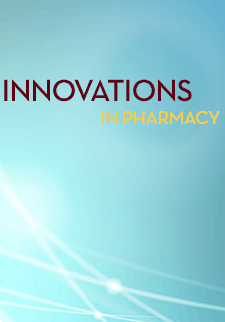Learner Perceptions of a Video Recording Activity for Patient Consultation Training in a Pharmacist-Led Primary Care Clinic Located in an Academic Institution
Hayley Bessette
The University of British Columbia Faculty of Pharmaceutical Sciences
https://orcid.org/0000-0002-3434-0113
Anita I. Kapanen
The University of British Columbia Faculty of Pharmaceutical Sciences
https://orcid.org/0000-0001-6091-9818
Nic Medgyesi
The University of British Columbia Faculty of Pharmaceutical Sciences
https://orcid.org/0000-0002-5598-8402
Jamie Yuen
The University of British Columbia Faculty of Pharmaceutical Sciences
https://orcid.org/0000-0002-5020-4285
DOI: https://doi.org/10.24926/iip.v12i3.3632
Keywords: video; recording; primary care; student; self-assessment
Abstract
Description of the problem: Development of evidence-based educational activities is needed to provide educators with the tools to aid learners in strengthening patient consultation skills in the primary care practice setting, an emerging area of practice in Canada.
Objective: The objective was to develop an educational activity to bring self-awareness to fourth year pharmacy student and pharmacy resident consultation skills and to determine learner perceptions of this educational activity, including identifying the key areas of skill development that learners found were positively impacted.
Description of the innovation: An innovative learning activity utilizing audio-video technology to enable recording and reviewing of learner-led patient consultations was developed and implemented within the University of British Columbia Pharmacists Clinic. Learners had the opportunity to lead 60-minute patient consultations. With patient and learner consent, patient consultations were recorded for learner viewing and self-assessment. Pharmacist preceptors supervised and assessed learner performance. Learners completed an online anonymous survey after the learning activity to evaluate its value.
Critical analysis: Between September 2018 and July 2019, eight pharmacy learners, consisting of student pharmacists (5) and post-graduate pharmacy residents (3) completed the learning activity and provided their feedback. The majority of learners (87.5%) felt the learning activity was beneficial to the development of patient consultation skills. Learners gained awareness of areas requiring improvement which included appropriate questioning, clear and concise language, time management and non-verbal habits.
Next steps: Adapting and modifying this learning activity to align with specific practice settings and learning objectives is feasible for other primary care practice sites offering experiential practicums.



